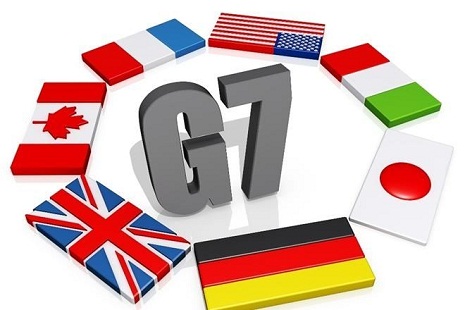The host of the G7 meeting, German Foreign Minister Frank-Walter Steinmeier, said they called for an end to the recent increase in violence in Ukraine, in spite of a ceasefire.
He also expressed concern about Russia’s decision to sell missiles to Iran, indicating the move is poorly timed with the negotiations on Iran’s nuclear program.
“We have the opportunity within the next two-and-a-half months to reach a proper agreement, to get a proper result," said Steinmeier. "So, I don’t think that we should preempt this issue and take steps that might be misunderstood by one side or another.”
Myriad crises
This meeting brought together the foreign ministers of Germany, Britain, France, Italy, Japan, Canada and the United States for meetings on crises including Ukraine, Iraq, Syria, Yemen, Libya and several in Africa.
Most of the G7 countries also are involved in the talks on Iran’s nuclear program, in which U.S. Secretary of State John Kerry has been taking a leading role.
“We are confident about our ability for the president to negotiate an agreement and to do so with the ability to make the world safer,” said Kerry.
Kerry said the Iran talks are “looming large” after he helped reach a framework accord two weeks ago, and with the deadline for a final agreement just two-and-a-half months away.
There was a heavy police presence in Luebeck for this meeting, as protesters gathered to march against G7 policies. But the violence that erupted during similar demonstrations a month ago in Frankfurt was not repeated.
These meetings involve considerable formality. Steinmeier said their importance is “underestimated,” though, as ministers have the chance to discuss crises that affect millions of people, and in which the world’s richest countries, and some of its largest militaries, have an important role to play.
More about:
















































